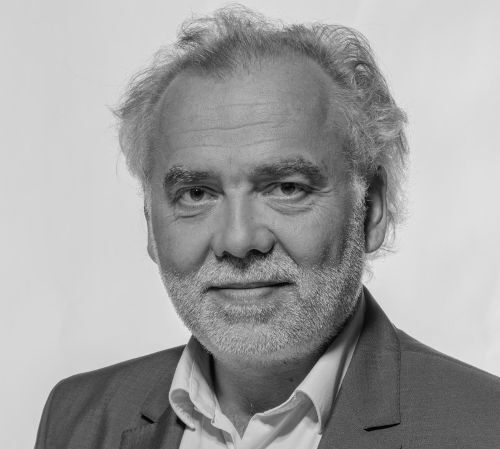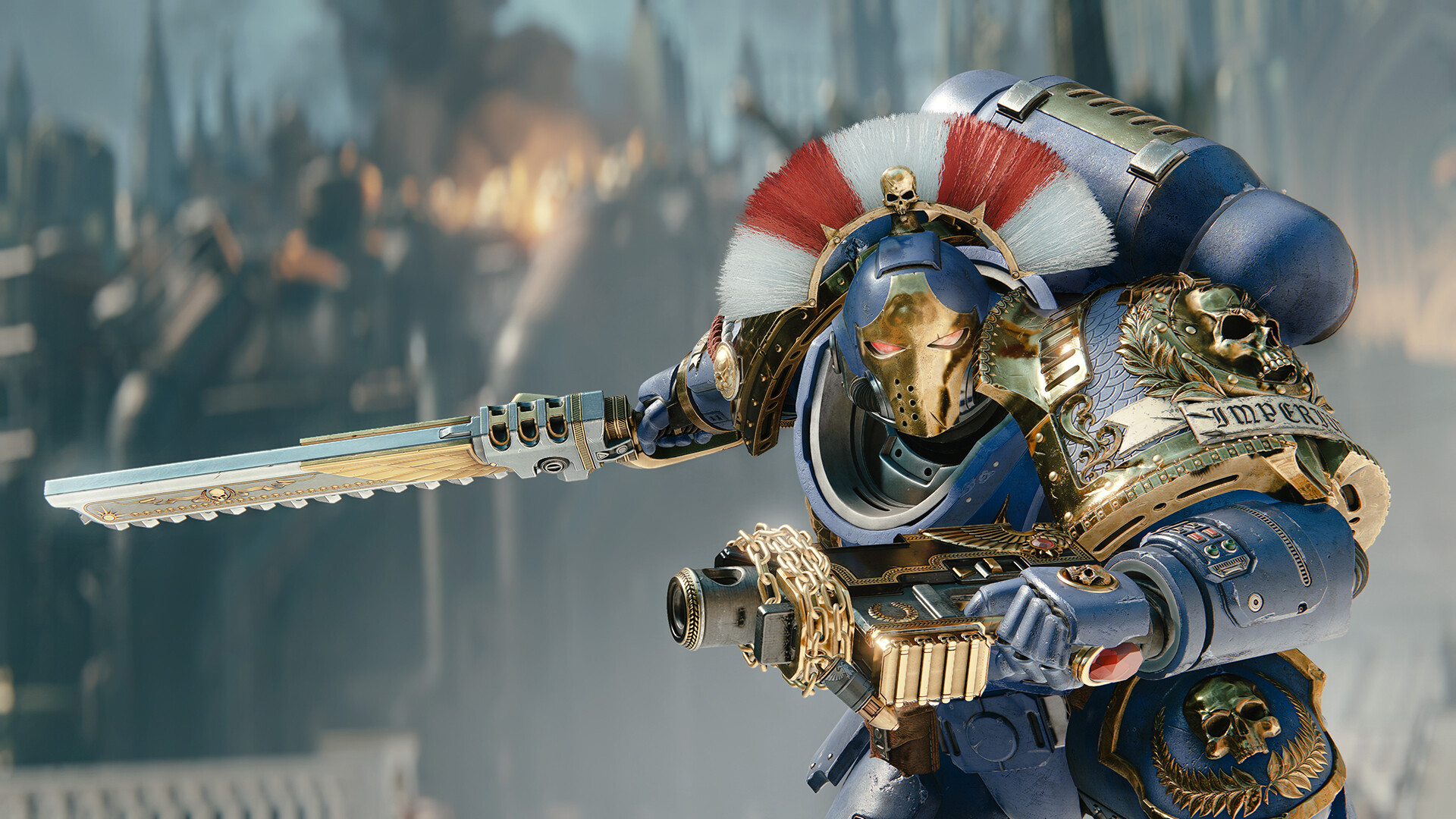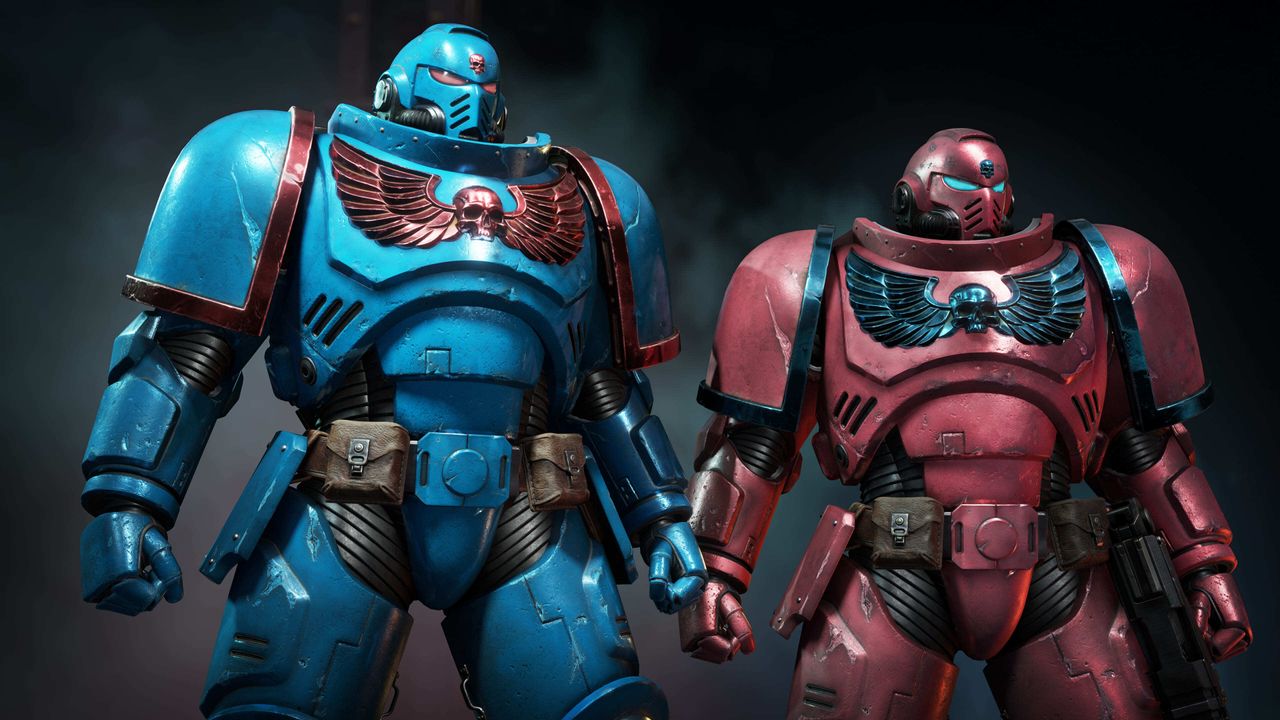Pullup Entertainment is having a good year. Its portfolio includes Farming Simulator and Space Marine 2 publisher Focus Interactive, indie and retro publisher Dotemu, and in-house studios like Deck 13, Dovetail Games—all of which are humming along well enough that Pullup’s quarterly revenue has increased by more than 130% over the previous year.
In an interview with The Game Business, Pullup CEO Geoffroy Sardin said even the firm was surprised by Space Marine 2’s sales.
“We didn’t believe that we could hit 7 million unique players,” Saidin said. “It was incredible for us.”
Sardin said that Pullup’s recent success is just one sign of many that, despite the regularity of news about layoffs, closures, and cancellations, there are more reasons to be optimistic about the industry’s future than the generally dire atmosphere might indicate. And that future, he said, is one that double-A and indie games are best positioned to profit from.

“Strip out the noise and you will be surprised by many positive realities. First of all, in fact, the industry has not grown over the past few years, but it has stabilized at a very high level after years of impressive growth,” Sardin said. “The industry remains powerful, and it is used to having phases of stabilization before returning to growth.”
Currently, Sardin said the industry is experiencing the fallout of a wave of overinvestment, which saw publishers use COVID-era low interest loans for rampant expansions and acquisitions.
“So it’s now going through a healthy phase where projects with limited ROI can’t find financing anymore,” Sardin said. “This is a necessary process to me. It gets the industry back on a growth trajectory.”
While I wonder how healthy this phase could be when widespread layoffs leave devs feeling like they’re better off leaving the industry entirely, the current instability is also revealing pervasive issues in triple-A game development, where rising production costs and lengthening development timelines are leading to risk-averse decisionmaking and stale game selections.
“With the triple-A model, there is massive financial risk with long dev cycles. We’re talking about five, seven, eight, 10 years sometimes,” Sardin said. “So we have low agility to find the right audience and low creativity, because we are talking about franchises.”
In other words, the games market is primed to respond to the strengths of mid-budget productions and indie games.

“On the opposite, with double-A or indie games, there is more agility, more resilience. We can control the budget. There is high creativity to differentiate ourselves. It’s a faster time to market, between one and two years,” Sardin said. “This is a shift we’ve seen in the numbers. The double-A and indie markets are thriving right now.”
Pullup’s portfolio, Sardin said, is able to achieve successes like Space Marine 2 because players are hungry for “highly targeted” games. “We do not design and publish games for everyone,” he said. “We design and produce games for someone. And when the execution is right, it ends up resonating with many more people.”
Pullup’s philosophy, therefore, isn’t to try to appeal to the broadest possible market. Instead, if its games work to refine the best possible experience for what might be a relatively niche pool of players—Warhammer sickos, for instance—their enthusiasm will naturally draw in a wider audience.

The proof of that strategy, Sardin said, is on PC, “where there is more appetite for discovering new things among a highly passionate and committed audience.” According to Sardin, Steam sales data has shown growing interest in double-A and indie games since 2023.
“Our games have a strong personality. That’s what makes them recognizable and appealing. We saw this with Space Marine, of course, but also with games like Void Crew, or Drova,” Sardin said. “It’s indie games that are receiving amazing reception from players and were more successful than anticipated. We just launched a game called Roadcraft. It’s a simulation game, and it’s also outperforming expectations. There’s no comparison. There’s no competition. We are proposing something new.”
